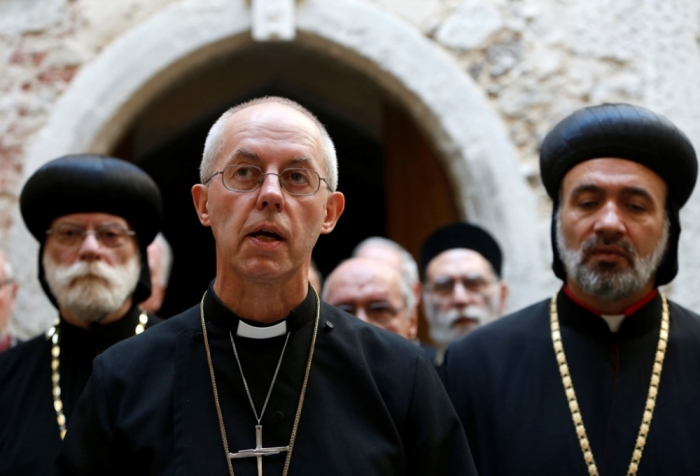Anglican Archbishop Welby Admits Force May Be Only Way to Defeat ISIS and Save Christians; Urges Religious Leaders to Oppose Extremism

Archbishop of Canterbury and Church of England leader the Most Rev. Justin Welby has shared his views on the global war against terror group ISIS, and admitted that there may be no other choice but to use force to protect people under attack. He also called on religious leaders to stand up against religious extremism that seeks to justify violence.
"Within Christian teaching there is a strong and brave tradition of absolute pacifism. Yet there are calls from Christian leaders in the Middle East for armed help. They seek temporary support while their own governments get their act together. They do not want the Middle East emptied of its Christian populations, essential to its culture, critical in many areas of life and there since before the time of St Paul," Welby wrote in an article for Prospect Magazine, to be released in November 2014.
"It may be that we cannot avoid some use of force, but that must be done in the context of a greater and more selfless ideal that renews the vision that rebuilt our own continent after the long wars that began in 1914," Welby continued.
"This struggle is for the heart and the spirit, not only for our security and undisturbed wealth. It is a winnable struggle, but the victory requires us to reshape our values, as much as to overcome those of ISIS."
The Church of England leader insisted that religious leaders need to play a prominent role in tackling religious extremism that fuels such conflicts, and urged them to "engage jihadism in religious, philosophical and ethical space."
"Religious justifications of violence must be robustly refuted. That is, in part, a theological task, as well as being a task that recognizes the false stimulation, evil sense of purpose and illusory fulfillment that deceive young men and women into becoming religious warriors," he wrote.
The Archbishop of Canterbury noted that attacks by ISIS on religious and ethnic minorities across Syria and Iraq are getting more severe, and said that any strategy to counter the terror group must be global in nature. He also told readers that there are many other violent conflicts going on in the world today, such as terror group Boko Haram's attacks in Nigeria.
"The Central African Republic has descended into utter barbarism, with a religious edge, seen by many Muslims as religious cleansing of their followers. Somalia is chaos, Libya is in meltdown," he added of other cases.
"This struggle is not simply a religious conflict, but a terrible mix of ethnicity, economics, social unrest, injustice between rich and poor, limited access to resources, historic hatreds, post-colonial conflict and more. It is impossible to simplify accurately," Welby said.
"We cannot tolerate the complexities and so we seek to hang the whole confusion on the hook of religious conflict. And because even to do that on a global scale is complicated, we focus on one area, at present Iraq and Syria, while others — Sudan, Nigeria and most recently Israel and Gaza — are forgotten."
The global war on ISIS was officially dubbed "Operation Inherent Resolve" earlier this week. Officials with U.S. Central Command explained that the name reflects the "unwavering resolve and deep commitment" of the U.S. and its allies to stop the Islamic militants, who are seeking to establish a caliphate in the region.
President Barack Obama has ruled out sending ground troops into Iraq or Syria to fight ISIS. Instead, the allied forces have been launching airstrikes against terror group targets, and supplying aid to the Iraqi and Kurdish governments.
Other religious leaders, such as Pope Francis, have also spoken out on the need to stop ISIS. The pontiff has argued, however, that war can never be the right way to stop the injustices of the world.
"War leads people into a spiral of violence which becomes difficult to control. It destroys what it has taken generations to establish and leads the way to even worse conflicts and injustices," Francis said at the Vatican in September.
In a previous interview about ISIS with journalists, the Roman Catholic Church leader had said:
"In these cases, where there is an unjust aggression, I can only say that it is licit to stop the unjust aggressor. I underscore the verb 'stop.' I'm not saying 'bomb' or 'make war,' just 'stop.' And the means that can be used to stop them must be evaluated."




























